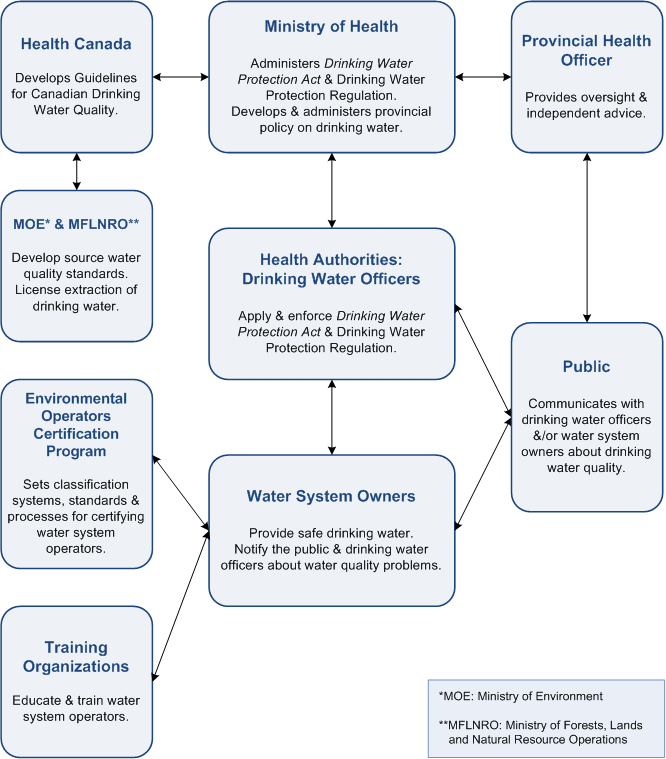Operators are the people responsible for ensuring the safe and continuous operation and maintenance of our water systems. While there are many departments and people with roles to protect B.C. drinking water, small water system owners and operators work most closely with the Drinking Water Officer (DWO) of regional health authorities and with the public.
It is the operator’s responsibility to:
- Provide safe drinking water
- Comply with the DWPA and DWPR
- Notify the public and Drinking Water Officers about water quality problems
- Both the operators and Drinking Water Officers are guided by provincial, and sometimes federal, legislation.
An overview of the provincial Drinking Water Protection Act and Drinking Water Protection Regulation can be found at the government’s information page. While not all sections are relevant to small water systems, it is highly recommended that you read the full Act and regulations.
The duties of an Operator are hands-on and include tasks, such as:
- monitoring water quality (bacteriological and chemical)
- monitoring sensor data display units for equipment (disinfection and filtration equipment, etc.)
- maintaining equipment (disinfection treatment equipment, pumps, valves, gauges, etc.)
- establishing and maintaining a preventative maintenance program for water system components and equipment
Some roles and responsibilities for drinking water are shared between operators and governmental bodies. In the chart below from the Government of BC, you can see how these governing bodies and individual operators work together to provide clean, safe drinking water.
